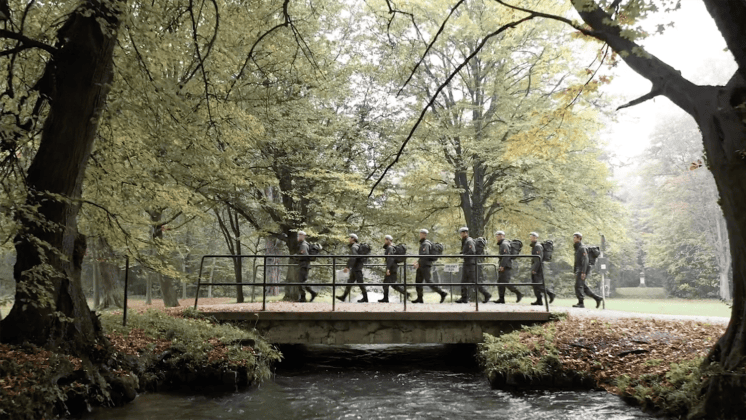The Viennese agency GGK MullenLowe has designed an employer branding campaign for the Federal Ministry of Defense, focusing on the topic of purpose. We spoke to CEO Michael Kapfer about the campaign.
Mr. Kapfer, what was particularly important to you in this campaign?
When we looked at the tender and previous campaigns, we actually knew quite quickly what we were aiming for. While previous advertising campaigns tended to focus on technical details and the presentation of the equipment and vehicles used by the armed forces, we wanted to emphasize the human component more strongly. We looked at how we could bring the topic of creating a sense of purpose to the fore. After all, a job in the armed forces is meaningful in two ways: you make a contribution to the good of society, but at the same time you also give meaning to your own life. Studies on the millennial generation clearly show that “jobs with meaning” are becoming increasingly popular, which is why we have emphasized this aspect more strongly. That was the core idea behind the campaign.
What was particularly challenging?
You have to fight against clichés and negative images and encounter classic prejudices that most of the people who worked on this campaign know from their own experience. In other words, from their military service about 15 years ago. Based on André Heller’s famous sentence that he only learned Latin and lies at school, when applied to the armed forces it means that you only learn to “walk around pointlessly in the field” and play cards. In other words, you follow orders, but in reality you don’t know why you are doing certain things. This image is still very much anchored in public discourse and we wanted to do away with it, and if you think it through to the end, many prejudices turn into strength.
“We met highly trained, highly qualified people who have a lot of experience and were able to give me important tips as a manager – especially on the subject of motivation. “
Did you have a different image of the army before you started working on the campaign than you did afterwards?
My father was a soldier in the army. As a result, I have always had a somewhat differentiated view of the army. But I also learned a lot from my son, who did his basic military service at the age of 18. His stories confirmed some prejudices and negative images, but refuted others. While working on the campaign, I was definitely able to get a more comprehensive picture, which is not really conveyed to the outside world in this form. When you sit in training sessions and lectures or do motivational training with top members of the Armed Forces, none of these negative images are noticeable. We met highly trained, highly qualified people who have a lot of experience and were able to give me important tips as a manager – especially on the subject of motivation. I was very impressed by the depth of the information and knowledge transfer.
There hasn’t been much publicity about diversity either. Was that also a factor that interested you?
Definitely. These are exactly the things that you hardly ever hear about because they are rarely discussed. The size of the employer, for example, which is able to offer exciting tasks to people with different levels of education. And thus also makes an important contribution to integrating people into society. Or the issue of one hundred percent equal treatment of men and women. Many companies in the private sector are still a long way from achieving this. We only became aware of a lot of things when we looked into the matter more intensively.
Was there anything that particularly surprised you?
As an advertising agency, we have rarely had to deal with such clear and comprehensible decisions. There was no constant weighing up of options or tedious maneuvering. Instead, we all had to pull ourselves together a bit, for example when it came to punctuality (laughs). But I also found that very motivating for my team. Overall, it was a lot of fun for everyone who worked on it. It was fascinating to actually be able to implement framework conditions in the course of the work that a private customer might not be able to put together so quickly. The onboarding was great and we got to visit a lot of great locations. The time and effort that was put into making sure we understood the army system as quickly as possible was impressive.
Click here to read the other articles in our “5 questions to” series.
















